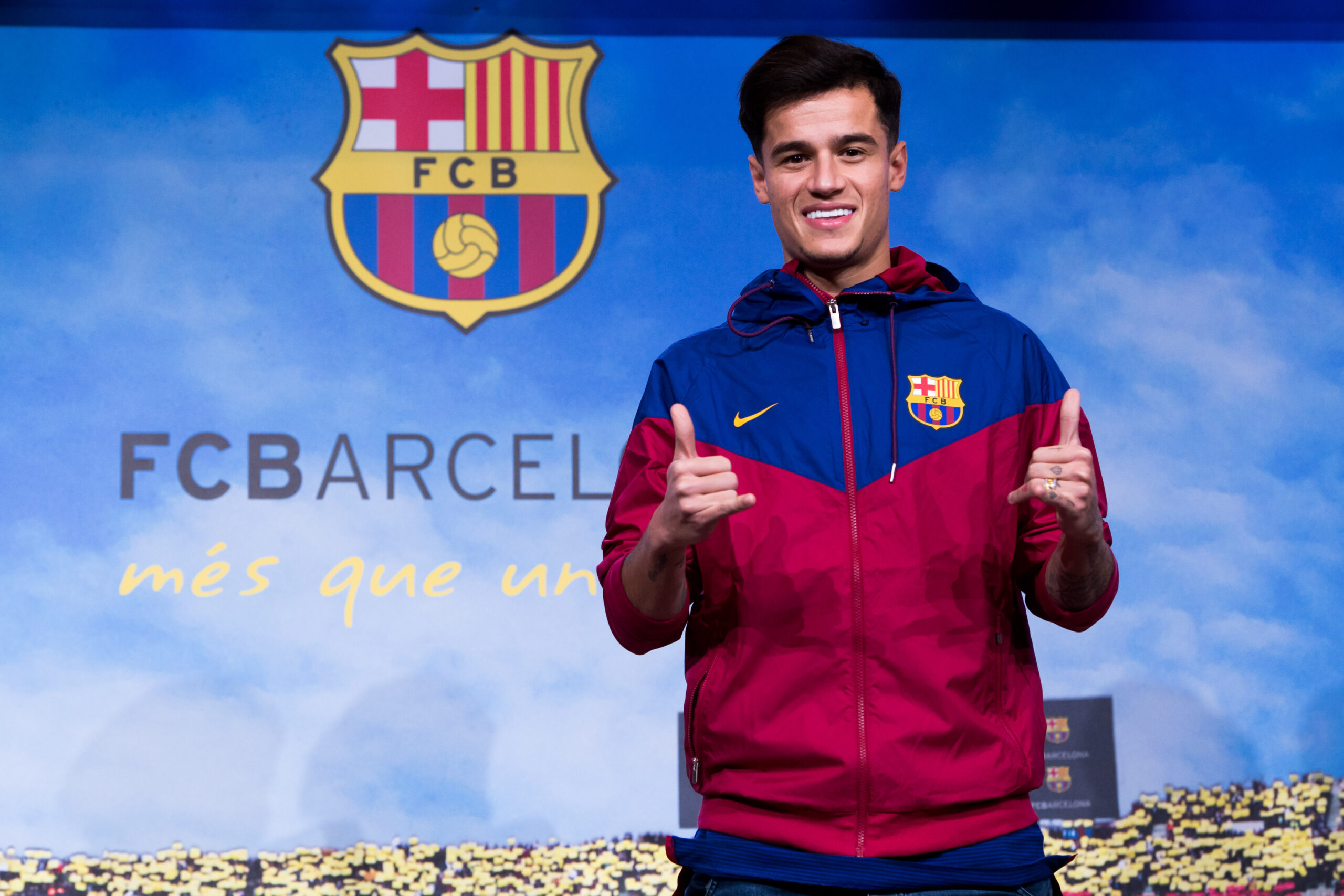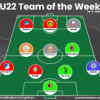Richard Pike takes a close look at the two Spanish giants – Real Madrid and Barcelona – with a view to the next decade.
With the remaining fixtures of the 2019/20 season now back underway in most major leagues, two leagues stand out above all when it comes to providing an intriguing title race. The first of those is Italy, where a fascinating three-way title fight between Juventus FC, SS Lazio and FC Internazionale is unfolding. The second is Spain’s title fight between El Clasico rivals FC Barcelona and Real Madrid CF.
It’s no argument that throughout the 2010’s, Barca have been the dominant force in Spain’s top flight, winning 7 out of 10 titles. Two of the other three were won by Real (2011/12 & 2016/17) with Atletico de Madrid taking the other title in 2013/14. Los Blancos, of course being more successful in the Champions League, where they have won 4 out of the last 10 editions compared to only 2 from Barca.
However, as the 2020’s dawns, Real Madrid have the destiny of the first La Liga title of a new decade in their hands. It could prove to be a title which ushers in a new era of domestic dominance in the upcoming seasons for the capital club.
Over-reliance on Messi and an ageing squad are likely to cost Barca
After their 2-1 away win over Champions League chasing Real Sociedad on Matchday 30, Los Blancos drew level with Barcelona on points. Real now lead La Liga due to a superior head-to-head record over Barca, whose 0-0 draw on the same Matchday away against Sevilla opened up the door for the capital club to take full advantage of.
Real are nowhere near home and dry yet. Barca still possess the mercurially still brilliant Lionel Messi and his support cast. Equally, all La Liga’s teams face a gruelling schedule of 8 games in just four and a half weeks where many points can be dropped. However, all the evidence since La Liga’s restart is pointing to Real triumphing over Barca, just like it did pre-Covid 19 pause. Barca’s upcoming run of fixtures against Athletic Bilbao, Atletico Madrid and Villarreal CF look much tougher on paper than Real’s.
Since the start of 2020 and Blaugrana’s 2-2 derby draw against city rivals RCD Espanyol, Barca’s performances have not convinced. It could be argued that only one, a 5-0 home victory over Eibar on Matchday 25 in February represented both a convincing performance and comfortable victory margin. One would expect rustiness upon the return after three months pause due to Covid-19. However, during their draw against Sevilla, Barca struggled to break down Julen Lopetegui’s outfit all game.
Credit must deservedly go to Sevilla, however, Barca looked out of ideas and tired throughout the contest. Even the usually brilliant Messi had an off-par night, perhaps the effects of playing 3 full games in just 6 days taking their toll on the Argentine. Even the previous fixture, a 2-0 win against strugglers Leganes followed in a similar fashion. Had it not been for poor finishing from the Madrid region outfit’s strikers, Barca could have easily trailed 2-0 in the opening 20 minutes.
Barca’s remaining 8 fixtures come in the space of just 26 days. Based on the evidence since the restart, Messi may have to play them all without rest. It highlights Barca’s over-dependence on the great Argentine who with 21 goals and 14 assists is seemingly on a personal crusade to inspire the Catalans to a 27th La Liga title. Barca’s big summer signing, French forward Antoine Griezmann has endured a disappointing first season at Camp Nou noting only 8 goals and 4 assists so far in 29 games.
Messi remains a magician. However, he soon turns 33, one must be concerned about the number of games he is having to play in such a tight schedule without rest. There are similar concerns about other members of Barca’s squad. Suarez and Gerard Pique are 33, likewise Arturo Vidal, Ivan Rakitic is 32, Sergio Busquets will soon turn 32 himself and Jordi Alba is 31. It is not an ideal scenario as Messi himself in the aforementioned Sevilla game alongside his below-par display was showing noteworthy signs of fatigue.
Years of poor transfer decisions are now catching up with Barca
One glance at the age of some of the aforementioned players and their ages will mean Barca, over the next 2/3 seasons will have to venture into the transfer market for replacements. However, one looks at Barca’s recent transfer business and may well feel trepidation at how they will successfully replace a great generation of players.
Since arriving in January 2018 from Liverpool for a transfer fee just short of EUR 150 million, Brazilian Phillipe Coutinho’s spell at Barca has been a total disaster. In his first full season in 2018/19, Coutinho played 34 La Liga games managing just 5 goals and 2 assists. After just 18 months in Catalonia, Coutinho for 2019/20 was sent off to German champions Bayern Munich on a season loan with an option to purchase at the campaign’s close. However, despite noting 8 goals and 6 assists in 22 Bundesliga matches for the Bavarians, Bayern recently opted to let their purchase option for Coutinho expire.

BARCELONA, SPAIN – JANUARY 07: Philippe Coutinho poses prior to signing his new contract with FC Barcelona at Camp Nou on January 7, 2018 in Barcelona, Spain. The Brazilian player signed from Liverpool, has agreed a deal with the Catalan club until 2023 season. (Photo by Alex Caparros/Getty Images)
Coutinho will return to Barca, where he is unwanted. He still has three years remaining on his contract and will be one of the club’s highest earners. Trying to rid an underperforming, high-earning and long-contracted player in a summer where there will be a financial impact on football due to the Covid-19 crisis will be tough. Recent reports state Barca will offer Coutinho out to clubs on another season-long loan where they will cover one third of the Brazilian’s wages.
It is one of numerous examples of Barca’s poor transfer decisions since the 2015/16 season. Other examples include Arda Turan, Aleix Vidal, Andre Gomes, Paco Alcacer and Malcolm. All the aforementioned transfers plus the disastrous Coutinho deal cost Blaugrana around EUR 300 million. Admittedly, sometimes, Barca have been unfortunate. Ousmane Dembele was signed from Borussia Dortmund in the summer of 2017 for EUR 125 million. Barca using a portion of the EUR 222 million they received from Neymar’s transfer to Paris St Germain to finance Dembele’s transfer. Barca have been unable to legislate for the persistent injuries the young French attacker has suffered.
Poor recruitment looks set to catch up on Barca. The Covid-19 crisis could force all clubs to scale back spending for at least one, possibly two summers. Barca themselves have already been affected. The club is cutting its scouting department in half and reportedly has to recoup around EUR 70 million in player sales to help balance the books.
Less money could be available for transfers, meaning previously poor player recruitment must improve. It could also mean a slower process of rebuilding an ageing squad that could take several transfer windows. It is unlikely Barca will endure a domestic decline like Arsenal or AC Milan, both enduring decade-long title droughts. However, the next 3 to 4 years could be both domestically and in European competitions, a tough transition period for the Catalan giants.
Real Madrid’s extra squad depth looks like it will prove decisive
On the other side of the El Clasico divide, Real Madrid have hit the ground running since the return. Their aforementioned hard-fought 2-1 victory away against Real Sociedad on Matchday 30 was the capital club’s third straight victory following comfortable 3-1 and 3-0 home victories against both SD Eibar and Valencia CF respectively. Real’s run-in looks much easier than Barca’s. Only two fixtures look like potential banana skins, a Matchday 34 away day against Athletic Blbao and a Matchday 37 clash at home against in-form Villarreal CF.
Whilst there was an element of luck involved in the victory against Real Sociedad, Los Blancos were more convincing in their performance than Barca were in their draw against Sevilla. Real’s victory being a necessary quality of any title-winning side, the ability to win ugly. One factor that cannot be ignored in explaining Real’s better results and performances compared to Barca is their extra squad depth.
Los Blancos possess more options on the flanks and in attack. In the three games played since the return, players such as Marcos Asensio and Eden Hazard, previously out for the season had the Covid-19 disruption not occurred have returned. Their return is like having two new signings. Hazard, the big summer signing from Chelsea, who has endured an injured-plagued first campaign at Real has displayed recent signs of form which thrilled Stamford Bridge for seven years. His recent link-up play with Real striker Karim Benzema will give Los Blancos fans excitement of a productive 2020/21 campaign.
In all of Real’s games so far, Hazard, Asensio, Vinicius Jr, Rodrygo, Luka Modric and James Rodriguez have all featured on the flanks and attacking midfield roles supporting Benzema. All have made important contributions. Compare to Barca who are carrying a struggling Griezmann, possess a midfield which is sluggish and look too dependent on Messi. This disrupted 2019/20 campaign is unlike a normal season ending scenario with only La Liga being in play at present. However, with teams playing on 3 or 4 day turnarounds, the normal scenario of weekend domestic fixture followed by midweek European fixture schedule is replicated. Real, with their deeper squad have a clear advantage.
Real’s “Young Galatico” signings are coming of age
Real’s experienced players who have done it all before such as Modric, Hazard, Benzema, Asensio and Toni Kroos are proving decisive in the title chase. However, also noteworthy for Real throughout 2019/20 has been the improvement of young talent at the Santiago Bernabeu. The two most noteworthy being young Brazilian left winger Vinicius Jr and Uruguayan central midfielder Federico Valverde. Both broke into Los Blancos’ first team in 2018/19 as promising youngsters, however, they will conclude 2019/20 and start 2020/21 as regular first-teamers.
Amongst the glimpses of his talent that Vinicius showed last season were frustrating decision-making and inconsistency expected of young players. Nonetheless, Real coach Zinedine Zidane kept faith in Vinicius throughout 2019/20. The frustrating actions remain, however, much less frequently than last campaign. In Los Blancos’ victory over Sociedad, Vinicius gave his best all-round performance for Real since his EUR 45 million move to the Santiago Bernabeu in 2018 from Flamengo. His dribbling runs were a continuous threat down the flanks, one of which resulted in a penalty that gave Real the lead. Furthermore, Vinicius’ off-the-ball work-rate was noteworthy as he tracked back to check Sociedad attacks and assisted Brazilian fullback Marcelo by fulfilling necessary defensive duties.
21 year-old Valverde arrived at Real from Uruguayan giants Penarol in the summer of 2016 aged 18. In 2018/19, Valverde made 25 appearances in all competitions, 10 as a starter, contributing zero goals and assists for Real. Contrast to 2019/20 where Valverde has contributed 35 appearances in all competitions, 25 of which as a starter noting 2 goals and 5 assists in a box-to-box midfield role. The Uruguayan has added much needed youth, pace and dynamism to Real’s midfield. Valverde’s improvement gives encouragement to Real supporters for further development in future campaigns.

EIBAR, SPAIN – NOVEMBER 09: Federico Valverde of Real Madrid CF celebrates after scoring his team’s fourth goal during the Liga match between SD Eibar SAD and Real Madrid CF at Ipurua Municipal Stadium on November 09, 2019 in Eibar, Spain. (Photo by Juan Manuel Serrano Arce/Getty Images)
Real became famous under the presidency of Florentino Perez for a Galaticos transfer policy. A strategy which saw them sign the world’s finest talent to achieve a huge trophy haul on-field and off-field commercial success. Recent seasons do still see certain Galatico signings, the most recent being Hazard. Nonetheless, Los Blancos’ new transfer strategy is now beginning to pay dividends, the pursuit of Young Galaticos. A strategy which involves the purchase of the globe’s most promising young talent aged between 18 and 20. The aforementioned Vinicius Jr and Federico Valverde are the first two of said Young Galaticos to emerge.
Others could follow in future seasons, Vinicius’ Brazilian compatriot, 19 year-old right winger Rodrygo has been given 19 games in all competitions for Real’s senior team this campaign, noting 7 goals and 2 assists. Two more noteworthy Young Galaticos are currently impressing out on loan. The first being 21 year-old Norwegian attacking midfielder Martin Odegaard, who on loan at Real Sociedad has noted 7 goals and 8 assists this campaign. The second being 19 year-old Japanese winger Takefusa Kubo, who on-loan at Real Mallorca has noted 3 goals and 3 assists in 28 games.
Real, like Barca have some underperforming, high-earners who they have difficulty moving on, the most noteworthy example being Gareth Bale, contracted until 2022. However, based on his improvement this campaign and with his ceiling being high because he is only 19, Vinicius already looks to seamlessly replace Bale on Real’s left flank. Despite Vinicius costing a huge sum for a young player, it could save Real a fortune down the line and lock-down a spot in their first-team for many a season.
No summer signings in 2020 may not necessarily be a problem for Real Madrid
As the aforementioned news about Barca being forced into cuts to their scouting department shows, the Covid-19 crisis is set to have a profound impact on football. Real, like Barca will not be immune and Los Blancos may have to face up to the idea of no summer transfer arrivals in the Spanish capital. No new Galatico, no elaborate new signing presentation at the Santiago Bernabeu.
However, this situation may not necessarily be a bad thing for Real. Firstly, the aforementioned emergence of young stars both in Real’s first team and out on loan. Vinicius and Valverde look set to continue to improve throughout 2020/21. There is scope for Rodrygo to achieve a similar breakthrough on the right flank in 2020/21 just like Vinicius has achieved on the left flank in 2019/20.
Secondly, Real already possess a bloated squad with several unwanted senior players such as right back Alvaro Odriozola, the aforementioned Bale, Dani Ceballos and James Rodriguez. Priority should be to move on some of these unwanted players this summer. In a market likely to be affected by the Covid-19 crisis, Real may not get big transfer fees. However, getting their wages off the payroll is of equal importance.
Valencia are reportedly looking to sign Ceballos at present. It is likely both Odriozola, currently on loan at Bayern Munich and Rodriguez will be offered to clubs for free. Rodriguez is reportedly looking for a move to Real’s city rivals Atletico.
Finally, not spending a penny this summer will help build up cash reserves for arguably the most important parts of Real’s squad which need attention in the summer of 2021. Three experienced players still currently playing at a high level in Real’s first team squad could need long-term replacements by 2021, Sergio Ramos, Karim Benzema and Claudio Casemiro.
One thinks back to last summer in the English Premier League when Chelsea were given a transfer ban by FIFA. Whilst preferring to have been able to sign players last summer, accepting a transition period and blooding their talented young players has been to Chelsea’s long-term benefit. Crucially, it also allowed owner Roman Abramovich to save funds. Savings which have secured the transfers of in-demand stars such as Hakim Ziyech and Timo Werner for 2020/21.
Real and Zidane with a possible title under their belt for 2019/20 could follow Chelsea’s example. A decision which could then give them more funds in 2021 to prioritise long-term replacements for three of the most important players in the club’s history. Whilst Werner and Ziyech will cost Chelsea considerable sums in both wages and transfer fees, their arrival is offset by the exit of two of Chelsea’s highest earning players, Pedro and Willian.
Come 2021, Real will find themselves in a similar situation, a high-earner in Luka Modric who then aged 35 will be off contract and it is unlikely to get a renewal. If Real is unable to sell James Rodriguez this summer, his contract expires in 2021 and his wages will come off the payroll then. Ramos’ contract also expires in 2021, he will then be 35, should he opt to stay at the club for one more season, he will likely have to accept much lower salary terms. Not spending this summer would be further aided come 2021 by significant wages freed up from high-earner departures and/or lower wage new contracts.
Barca cannot be written off, however, Real look a better bet to dominate for the next few seasons
No-one can write off FC Barcelona. Despite his advancing years, Messi remains mercurial and with a player of his ability at their disposal, Barca always have a chance to continue their successful run of La Liga titles. However, a combination of an ageing squad, five seasons of mainly poor player recruitment and an over-dependence on Messi mean Barca’s era of domination in La Liga may be over during the next 2/3 seasons at least.
Real were always going to suffer when Cristiano Ronaldo departed for Juventus, a departing player of his ability leaving any club will have an impact. However, a La Liga title in only the second season after Ronaldo’s departure and after finishing 21 points adrift of Barca last season will represent a great triumph for Los Blancos. It indicates Real are gradually adapting to life after Ronaldo. An argument strengthened by encouraging signs from a finally fit Hazard, a returning Asensio and the emergence of young talent such as Vinicius and Valverde.
It is important to remember Barca within 2/3 seasons will have to face up to life after Messi themselves. The aforementioned discussed factors above give little confidence they will manage the post-Messi years successfully. It leaves the door open for Real to dominate La Liga over the next few seasons.
Read all our Opinion articles here.
- What could be the consequences of another lockout of the Champions League knockouts by Europe’s “Big Five” leagues? - November 24, 2020
- 2020-21 Serie A: U20 Young Players To Watch - September 16, 2020
- 2020-21 La Liga: U20 Young Players to Watch - September 12, 2020
























































